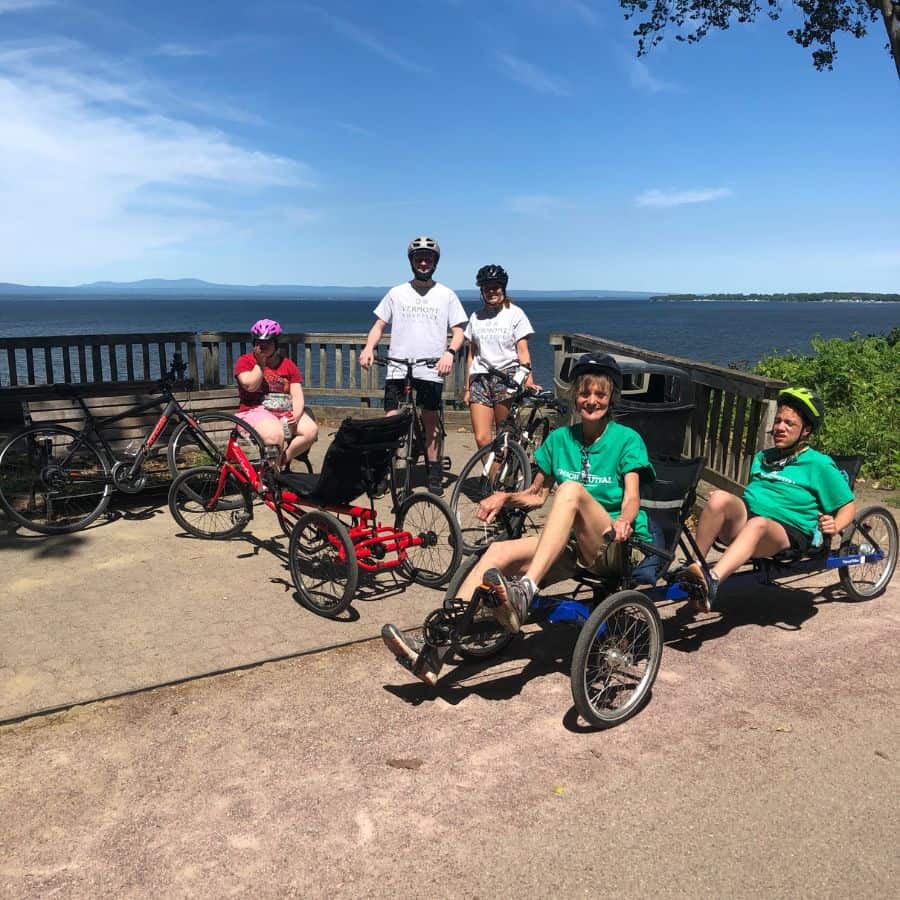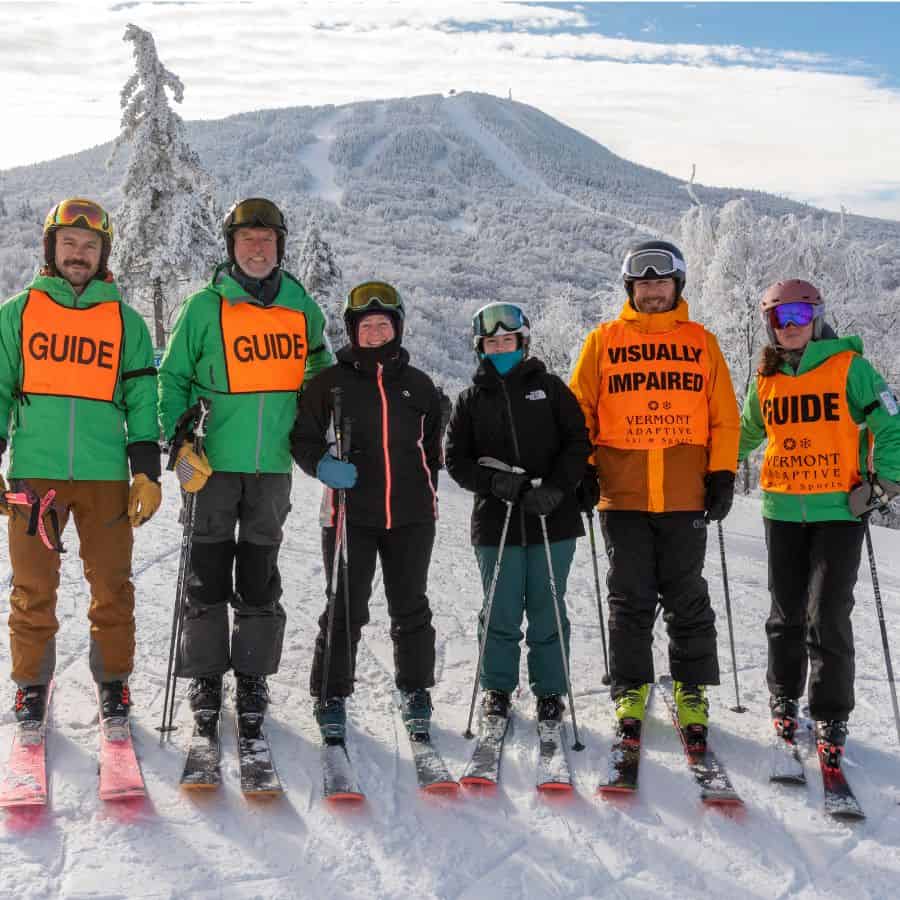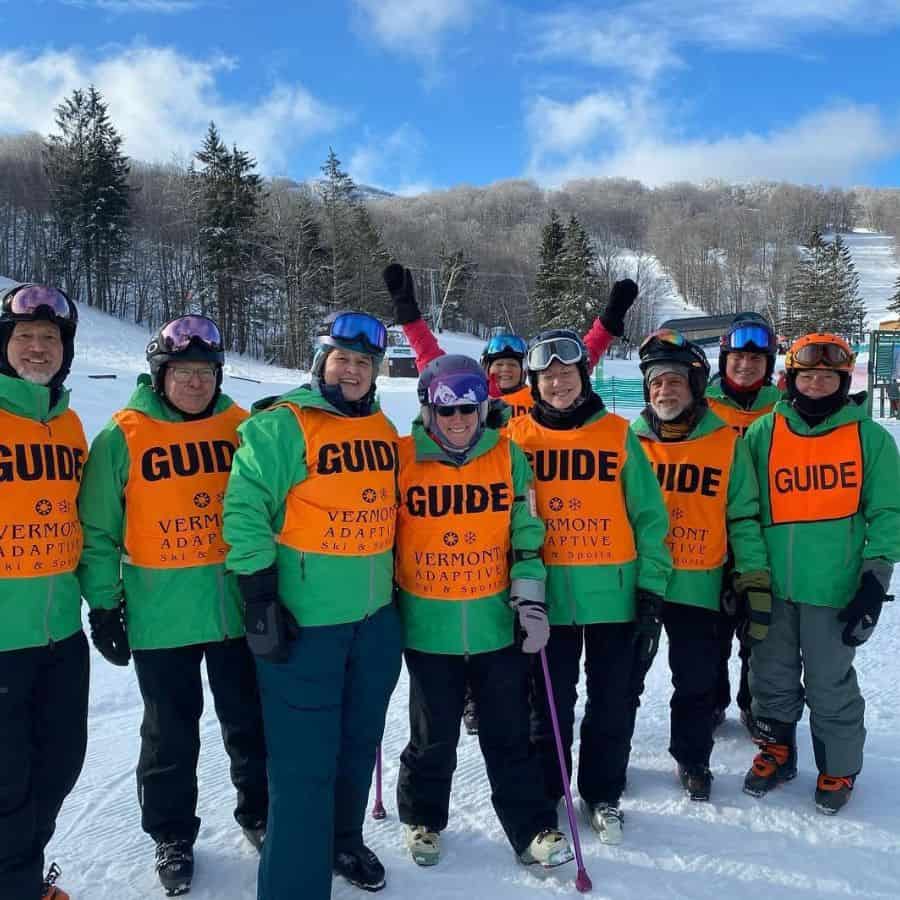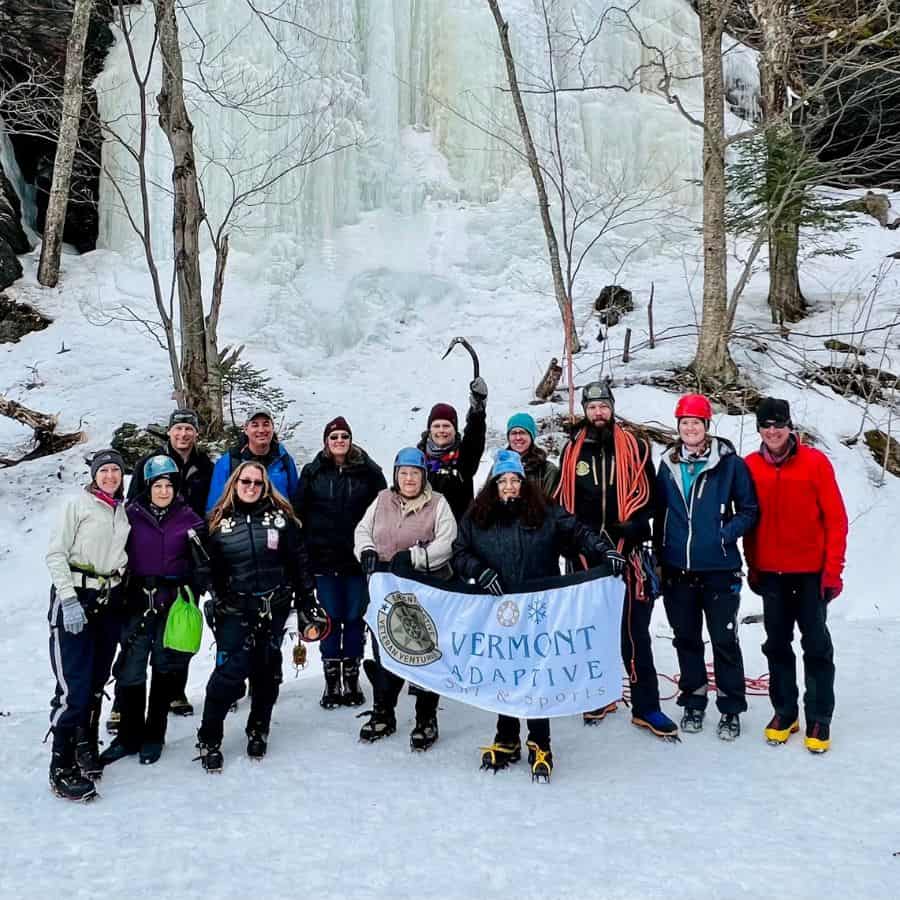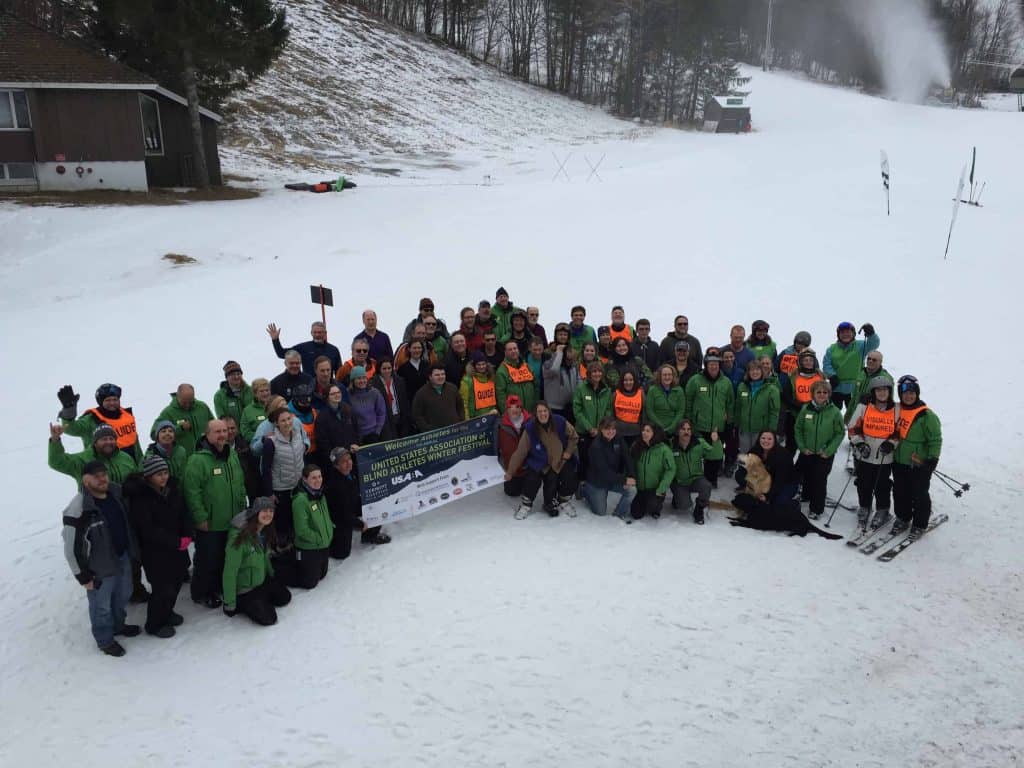By Hunter Hedenberg, guest blogger
This coming weekend marks the 10th anniversary of the United States Association of Blind Athletes (USABA) and Vermont Adaptive Ski and Sports working together at Pico Mountain to host a weekend long event for athletes from around the country who are blind or have visual impairments.
Thirty-two athletes from ages 10 to 70 will fly or drive in to Vermont on Friday night, and ski, ride, and bond for four days until they head home on Monday. The weekend consists of full days of riding, banquet meals, and plenty of opportunities to break down physical, mental, and societal barriers. Some of these athletes have skied before and will practice running racing gates. Others have never touched skis in their lives and will be learning just the basics. No matter at what level they ski, each athlete is there to push boundaries in a safe and supportive environment.
Vermont Adaptive Senior Program Coordinator, Tom Alcorn says the weekend is all about “breaking down stereotypes and challenging perceived boundaries both within the athletes’ minds and society.”
Kevin Brousard, the USABA membership and outreach coordinator, provided an excellent example of just how effective this weekend is at enabling athletes to get on the slopes. He shared the story of Tim Fallon, a Marine who stepped on an IED while serving which left him totally blind. Last year, Fallon called Brousard expressing interest in the USABA weekend with Vermont Adaptive because prior to his accident, he and his wife had frequently gone skiing together, but since becoming blind he thought that he would never ski again. Turns out, Fallon did ski again, and impressively well. Just like riding a bike, he picked up the skills and regained his muscle memory easily. By the end of the weekend last year, some of our volunteer guides had actually taught Fallon’s wife how to guide, which enabled the couple to bring skiing back into their lives outside of the USABA and Vermont Adaptive.
This year, there also will be three female military veterans with visual impairments attending. Brousard emphasizes how this is particularly important because the blind and visually impaired community is a small percentage of the American population, and it is important to USABA to be able to offer these types of opportunities to as many athletes as possible.
Brousard says that this story is “indicative of the barriers that adaptive sports can break down for people. People think they can’t do things but when you’re able to go out and accomplish things that people say you can’t do because you’re blind, it bleeds over in to other aspects of your life.”
For an athlete who is blind or has a visual impairment, skiing or riding is entirely different. Having 32 athletes attend the winter festival also calls for a large number of volunteers with the ability to guide or call out turns to those athletes. Some of these guides are exceptionally skilled Paralympic guides for racers. Others are weekend volunteer instructors with Vermont Adaptive who have been working with this group for years. All of them are invaluable in making this event possible. Brousard notes that each year he is “really blown away by all the volunteers and staff who were happy as can be to be out there.”
The blind and visually impaired community is largely built on word-of-mouth recommendations and that is one of the reasons why this event has become so large. In this vibrant community, reputations of establishments and events are everything. This partnership with USABA and Vermont Adaptive has become so popular because the weekend provides high quality programming and the athletes have a great time, and over the last 10 years word of that has gotten out.


